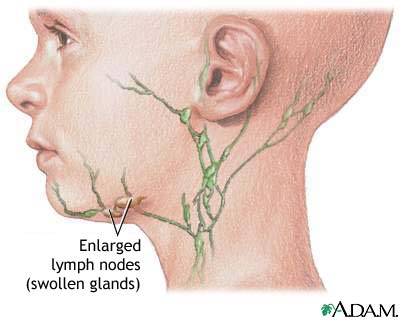
Yesterday’s tragedy is a reminder of how precious life isand how easily it can be taken from us. two young people losttheir lives due to intense emotions precipitating frominterpersonal relationship issues. we are unsure if they reachedout for help prior to this tragedy. Though help is available, manyare too overwhelmed psychologically to reach out. This may be dueto fear, feelings of hopelessness, psychological exhaustion,humiliation, minimization of symptoms and/or financialrestrictions. Unfortunately, when tragedy strikes, it’s a reminderto take better care of ourselves and others in our community.
How can you help? once you’re aware of the issues you candiscuss your concerns with the individual, if it doesn’t put you indanger. In addition, if the individual is not safe to talk to,call law enforcement. often times, family and friends have theirhands tied, because they can’t make someone get help. Theindividual has to want change and engage in treatment themselves. Your responsibility is to take these concerns seriously and contactothers for assistance. it may seem like you’re getting tooinvolved or paranoid that you may get him/her into legal trouble. Nonetheless, some type of intervention must take place.
Mental health treatment can range from meeting with a counseloronce a week (for an hour) to inpatient psychiatric services. Whensomeone you know presents homicidal and/or suicidal ideation youneed to call law enforcement ASAP. They may take them to theemergency room, or you can if you’re not in danger. a designatedexaminer will evaluate them to see if inpatient services arewarranted. This may involve a voluntary or involuntarycommitment.
below are some red flag (warning signs) to look for withinyourself and your relationships:
1. Is my partner abusive?
Is he/she: critical of you and your abilities, overprotectiveor extremely jealous, threatening to hurt you, your kids or pets,have sudden bursts of anger, destroying your property, denying youaccess to family/friends or money, forcing you to have sex when youdon’t want to, humiliating you in front of others, minimizing theirproblems and behaviors, instilling guilt in you in order tomaintain control, discounting your feelings, having to be with youall of the time, following you or showing up uninvited, usingintimidation or manipulation to control you, threateningsuicide/homicide to control you, or physically abusing you, yourchildren or pets? Remember it doesn’t take physical abuse toconstitute “domestic violence;” it’s often mental abusealone.
2. am I abusive?
Do you: tell your partner who they can talk to or hang outwith, criticize or humiliate partner alone or in front of others,try to make your partner feel guilty, force partner into sex orother things they don’t want to do, follow your partner when theyare not with you, feel preoccupied with jealousy, obsess about yourpartner having affairs, threaten to hurt or kill partner, theirchildren or pets, prevent partner from being independent, feelextremely vulnerable and paranoid and that you have to be incontrol of partner, call partner names in an effort to destroytheir self esteem, spit, hit, punch, kick, rape partner, blamepartner for everything, have difficulty taking responsibility foryour actions, have an explosive temper, have issues with theopposite gender, threaten to hurt or kill yourself if partnerleaves you, damage or destroy your partner’s property, feel a senseof relief after you’ve exploded, do things to scare/intimidate yourpartner, or threaten partner if they should tell anyone about theabuse?
3. Symptoms indicative of mental health concerns:
Depressed mood most of the day, lack of interest or pleasure inmost activities, need to numb out, substance abuse, insomnia orhypersomnia (excessive sleep), agitation, intense anger or urges toexplode violently, restlessness, inability to think or concentrate,abnormal irritability or excessive speech, significant highs andlows in emotional states, intense anger or feelings of wanting tohurt others or self, racing thoughts, obsessions or preoccupations,delusions, hallucinations, paranoia, feeling like everyone isagainst you, detachment from self and others, fear of a shortenedfuture, recurrent recollections of a traumatic event,preoccupations with past and/or future, preoccupations withrevenge, feelings of being inadequate or less important thanothers, or an inability to function at home, work and inrelationships.
For more information you can visit the Bannock County DomesticViolence and Sexual Assault Task Force website:bannockcounty.us/dv/index.html
the bottom line here is that life can become extremelydifficult. Strong emotions can be debilitating on personal andinterpersonal levels. help is available and our community isfortunate to have highly skilled mental health professionals herelocally. Costs depend on the following: if you’re a victim ofviolence, if you’re a veteran, if you have insurance, or if you’reon Social Security (or have Medicaid).
If you or someone you know is suffering from violence and/ormental health issues that impair their ability to function at home,work or in relationships, please call one of the numbersprovided:
• A-Z Family Services: 478-9822
• Family Services Alliance: 232-0742
• Center Counseling: 237-1711
• Center for new Directions: 282-2454
• Psychological Assessment Specialists: 233-0150
• ISU Psychology Clinic: 282-2129
• Adult Mental Health: 234-7900
• new Generations: 478-9551
• Mental Wellness Center: 478-9081
• Behavioral Health Unit at Portneuf: 239-1620
For more information please contact Cassia Wheelock LPC,NCC, Sixth District Domestic Violence Court Coordinator at236-7421
Copyright 2011 Idaho State Journal. All rights reserved. This material may not be published, broadcast, rewritten or redistributed.